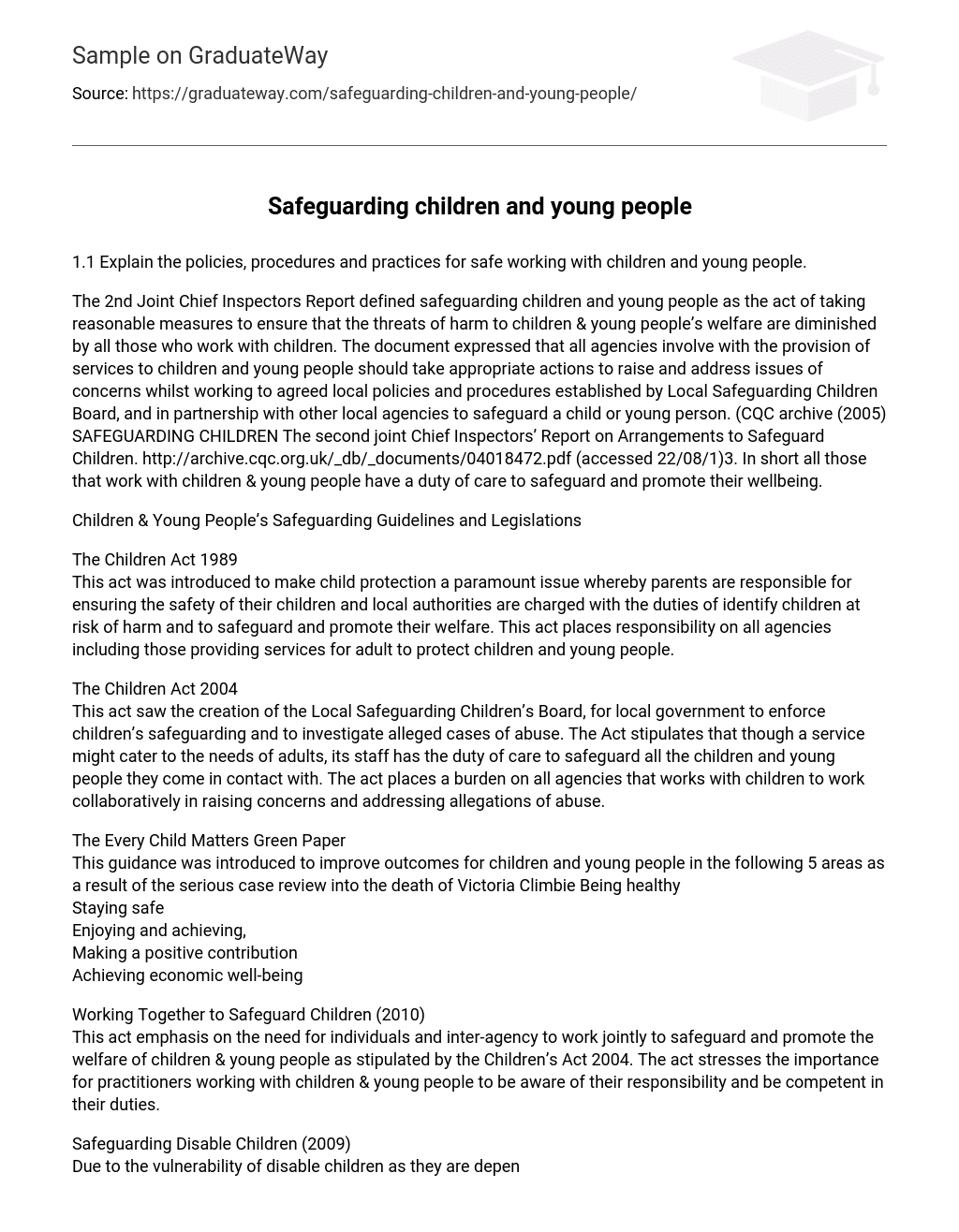Explain the rights that children, young people and their families have in situations where harm or abuse is suspected or alleged
Under the Children’s Act 1989 and the Human right Act 1998, children and young people have the right to be protected from significant harm. In cases of alleged abuse the initial step should be protecting the children by removing them from the environment where the abuse occurred, and taking actions to investigate the allegation so the perpetrator could be prosecuted.
The storing and processing of personal information about children and young people is governed by the Data Protection Act 1998, which states an individual has the right to privacy and for their personal sensitive details to be held confidentially. The European Convention for the Protection of Human Rights and Fundamental Freedoms also declare that children & young people have a right to privacy.
The data protection act provides guidelines on the safe processing and sharing of confidential details. An aspect of the data protection act is to seek the consent of the individual for their information to be used, as children & young people under the age of 16 are presumed to lack the capacity to give consent, their advocate will have to consent on their behalf.
There are various legislative guidelines and best practice tools promoting joint delivery of service in safeguarding adults, it is inevitable that information recorded by one agency will be shared with other professionals. In such situation the guidelines issued by the data protection act should be adhered to, not only to maintain the rights of the vulnerable child but to also maintain the privacy of the family (siblings parents etc). The protection of children which is public interests out-weighs the family’s right to privacy, and as such information about the family might be shared amongst agencies when investigating allegations of abuse.





